#Michael C. Jenkins
Text
#important#please boost#signal boost#news#american news#protect black men#justice#police#Michael C. Jenkins#police brutally#targeted#justice now
0 notes
Text


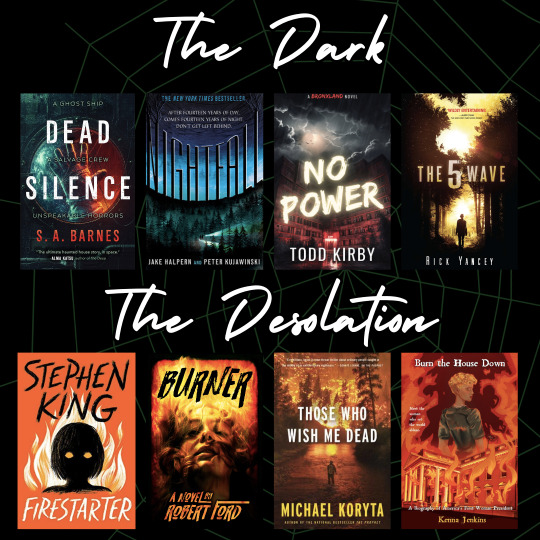
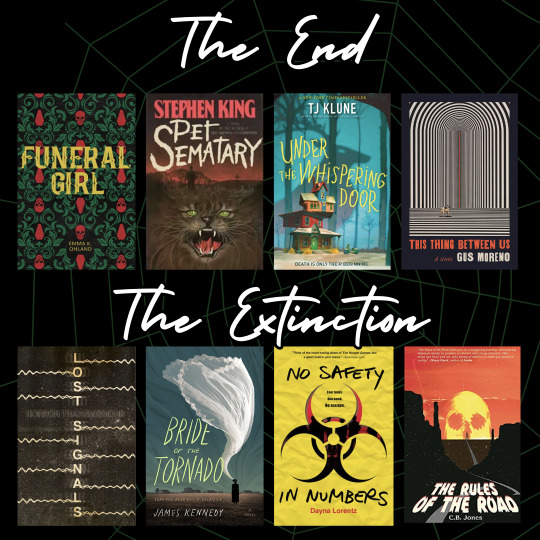
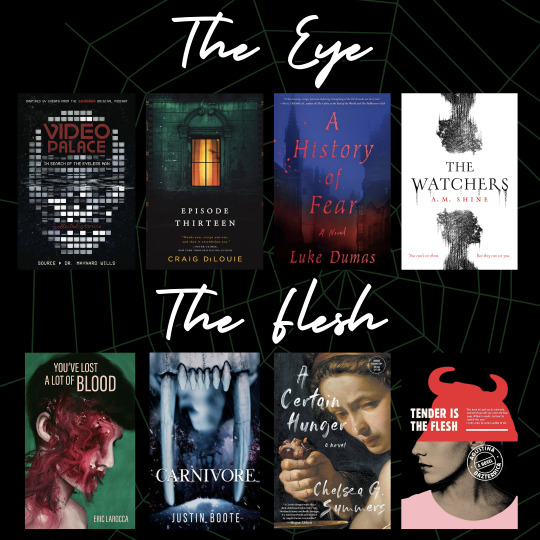
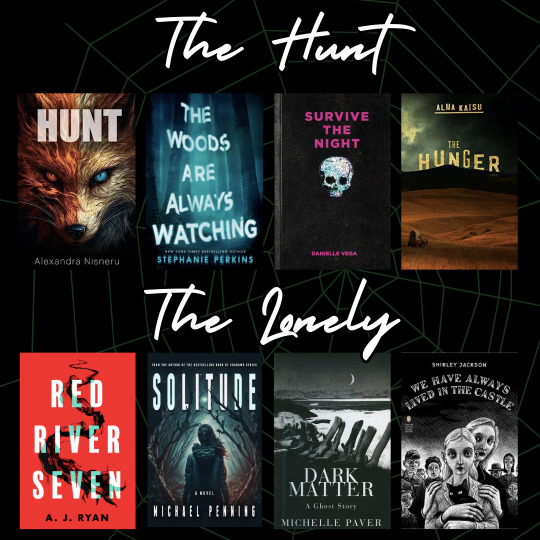


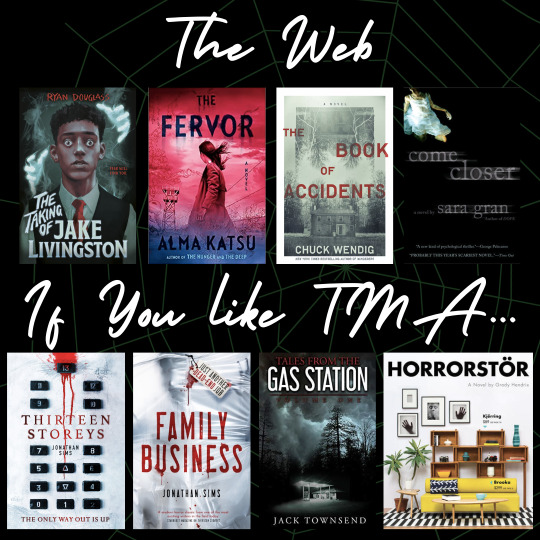
💚👁️🕸️ In honour of The Magnus Protocol releasing today, here are some book recommendations based on The Magnus Archives Fears!! 🕸️👁️💚
Detailed list of books below the cut!
For more book recommendations, especially queer horror, check out my Bookstagram @hauntedstacks
The Buried ⚰️
- Into the Sublime by Kate A. Boorman
- Stuck by Ben Young
- The Luminous Dead by Caitlin Starling
- The Deep by Nick Cutter
The Corruption 🦠
- What Moves the Dead by T. Kingfisher
- Green Fuse Burning by Tiffany Morris
- The Honeys by Ryan La Sala
- She Is A Haunting by Trang Thanh Tran
The Dark 🌑
- Dead Silence by S.A. Barnes
- Nightfall by Jake Halpern & Peter Kujawinski
- No Power by Todd Kirby
- The 5th Wave by Rick Yancey
The Desolation 🔥
- Firestarter by Stephen King
- Burner by Robert Ford
- Those Who Wish Me Dead by Michael Koryta
- Burn the House Down by Kenna Jenkins
The End 💀
- Funeral Girl by Emma K. Ohland
- Pet Sematary by Stephen King
- Under the Whispering Door by TJ Klune
- This Thing Between Us by Gus Moreno
The Extinction 🦴
- Lost Signals by Max Booth III
- Bride of the Tornado by James Kennedy
- No Safety in Numbers by Dayna Lorentz
- The Rules of the Road by C.B. Jones
The Eye 👁️
- Video Palace by Maynard Wills
- Episode Thirteen by Craig DiLouie
- A History of Fear by Luke Dumas
- The Watchers by A.M. Shine
The Flesh 🦷
- You’ve Lost A Lot of Blood by Eric LaRocca
- Carnivore by Justin Boote
- A Certain Hunger by Chelsea G. Summers
- Tender is the Flesh by Agustina Bazterrica
The Hunt 🏹
- Hunt by Alexandra Nisneru
- The Woods Are Always Watching by Stephanie Perkins
- Survive the Night by Danielle Vega
- The Hunger by Alma Katsu
The Lonely ☁️
- Red River Seven by A.J. Ryan
- Solitude by Michael Penning
- Dark Matter by Michelle Paver
- We Have Always Lived in the Castle by Shirley Jackson
The Slaughter 🥩
- Manhunt by Gretchen Felker-Martin
- Your Shadow Half Remains by Sunny Moraine
- American Psycho by Bret Easton Ellis
- The Summer I Died by Ryan C. Thomas
The Spiral 🌀
- That Darkened Doorstep by Catherine Jordan
- Mind the Mirrors by Amanda Leanne
- Grey Noise by Marcus Hawke
- Last to Leave the Room by Caitlin Starling
The Stranger🕴️
- It Looks Like Us by Alison Ames
- My Best Friend’s Exorcism by Grady Hendrix
- The Deep by Alma Katsu
- The Outside by Stephen King
The Vast 🪂
- From Below by Darcy Coates
- Into the Drowning Deep by Mira Grant
- Floating Staircase by Ronald Mafi
- Nightmare Sky by Red Lagoe
The Web 🕸️
- The Taking of Jake Livingston
- The Fervor by Alma Katsu
- The Book of Accidents by Chuck Wendig
- Come Closer by Sarah Gran
If You Like The Magnus Archives 💚
- Thirteen Stories by Jonathan Sims
- Family Business by Jonathan Sims
- Gas Station by Jack Townsend
- Horrorstör by Grady Hendrix
#the magnus archives#the magnus protocol#tma#tmp#Jonathan sims#rusty quill#martin blackwood#jonmartin#booklr#bookstagram#books#horror books#queer books#horror book recs#book recs#mine
761 notes
·
View notes
Text
Character Development
Here's the summary of today's live discussion.

What is it?
Character development can refer to initial character creation, but when I say character development, I'm usually talking about how the character grows and evolves over the course of the story.
We will talk about both.
Character Creation
Creating a character is much more than just what they look like. So many things play into their personality, beliefs, feelings, etc. Their ethnicity, religion, sexual orientation, what kind of upbringing they had, past traumas, general inborn temperament traits, etc.
Character Types
Static v dynamic: refers to how much the character changes throughout the story.
Static characters stay the same and do not change at all during the course of a story.
Dynamic characters change and grow in many different directions. This character will develop and change throughout the story, sometimes to the point where it surprises the reader. Sometimes they surprise themselves and the other characters.
Flat v Round: refers to how much depth the character has.
Flat: A flat character is pretty one-dimensional, and that doesn’t change throughout the story. It is a static character with little to no depth. Maybe one or two identifying traits.
Round: A round character is more developed and has some depth and layers. They are interesting. They do not necessarily change throughout. (Unless they are also dynamic).
Character-driven story v Plot-driven stories: A plot-driven story is one where the plot moves the characters, while a character-driven story is one where the characters drive the plot.
The key difference between a plot-driven story and a character-driven one is that in a character-led narrative, the focus is more on the thoughts and feelings of the protagonist and the decisions that they make. Whereas, in plot-driven narratives, the action and occurrences that unfold will be the main point of focus.
Plot Driven examples:
Jurassic Park by Michael Crichton.
Dark Matter by Blake Crouch.
Gone Girl by Gillian Flynn.
The Da Vinci Code by Dan Brown.
Character Driven examples:
To Kill a Mockingbird by Harper Lee.
The Seven Husbands of Evelyn Hugo by Taylor Jenkins Reid
Practical Magic by Alice Hoffman.
Some Definitions
Main Character: The character through whose POV we get the story. Often the same as the protagonist, but not always.
Protagonist: Prime mover of the plot. And in the vast majority of cases, the main character.
False protagonist: A character that seems to be the protagonist until a twist tells the reader otherwise. Think Ned Stark in Game of Thrones. This is why his death was such a shock, because most readers assumed he was the main character. This is often done exactly for that reason. Plot twists and shock value.
Antagonist: Opposing force who stands in the way of the protagonist’s goals.
Grey/morally ambiguous character: Just as it sounds. A character who is not all good nor all bad. They have complex motives and can sometimes be a loose cannon. Their actions are not always clear-cut in terms of morality.
Unreliable Narrator: An unreliable narrator is an untrustworthy storyteller, most often used in narratives with a first-person point of view. The unreliable narrator is either deliberately deceptive or unintentionally misguided, forcing the reader to question their credibility as a storyteller.
Character Arc
The character arc is the full extent of how the character's inner world - thoughts and emotions - transforms from the beginning to the end of a narrative.
Things we will discuss in a future session:
Character motivation
Inciting incident
drivers of character growth
Random recommendations from today:
Lovecraft Country: an American horror drama television series developed by Misha Green based on and serving as a continuation of the 2016 novel of the same name by Matt Ruff. Lovecraft Country follows Atticus Freeman as he joins up with his friend Letitia and his Uncle George to embark on a road trip across 1950s Jim Crow America in search of his missing father. This begins a struggle to survive and overcome both the racist terrors of white America and the terrifying monsters that could be ripped from a Lovecraft paperback.
Otherworld series by Kelley Armstrong. A good example of using the same characters but shifting who is the main character from book to book. The series began in 2001 with Bitten, featuring werewolf Elena Michaels. It continued for thirteen novels, introducing other supernatural characters–witches, ghosts, necromancers, half-demons–and spinning off to their stories, and expanding the series into a multi-narrator fantasy world. Past characters continued to appear in guest roles and often returned to narrate new novels or short fiction.
Ya'll, I'm sure there were more recs from both myself and others but I'm drawing a blank and once the live stage ends, I can't see the chat anymore, so please comment or DM me if you remember a rec that I didn't.
Please, if I've missed anything at all, mention it in the comments and I'll add it!
Also, check out these articles:
Character Development
April Event:
TBD pending voting.
Word Warriors:
@karahalloway @aussiegurl1234 @harleybeaumont @alj4890 @peonierose @petiteboheme @twinkleallnight @lizzybeth1986 @noesapphic @thedistantshoresproject @welcometotheweirdplqce
@ryns-ramblings @tate-lin @nestledonthaveone
@aallotarenunelma @kristinamae093 @coffeeheartaddict2 @memorias-depresivas
@jerzwriter
#word warriors#writing tips#writing advice#creative writing#writing#writers on tumblr#character development
136 notes
·
View notes
Text
ppl who've seen howl's moving castle and not read the book would be stunned to know that
A. The real world exists in that universe and Howl is from Wales- his real name is Howell Jenkins
B. Sophie is a witch; she speaks life into things like hats, sticks, scarecrows, etc.
C. The scarecrow wasn't just some prince who got cursed and left on the side of the road, he's a prince who was taken apart by the Witch, who used pieces of his body to create the perfect man. He's wondering around looking for the missing pieces of his body
D. Howl has a human skull in his castle that belonged to the prince. When the scarecrow puts it on it can speak
E. In the book, it doesn't show howl & Sophie's relationship change like in the movie. They hold hands at the end of the book while ignoring everyone talking to them
F. Markl's name is Michael, and he's dating Sophie's youngest sister Martha, who runs the bakery that Lettie ran in the movie
G. Sophie has two younger sisters, Martha & Lettie, who switched places because Martha wanted to work at a bakery and Lettie wanted to learn magic, so they used a spell to disguise themselves
H. Howl courted Lettie for a period of time
I. Howl has a sister, Megan, who doesn't think too highly of him
J. Howl went to college
K. The black section leads to the real world, not the war scene you saw in the movie. There's no color for that in the book
L. There are more than 4 colors on the door selection
M. Heen is supposed to be a human cursed to be a dog, and he doesn't work for madame suliman
N. The person who taught howl was actually Mrs. Pentstemmon, who is killed by the Witch of the Waste
O. Madame suliman isn't a character in the book. She (might) be based off of wizard suliman, also named Ben sullivan (who is from wales), who went off to go kill the Witch and ended getting killed himself, and whose body parts were also used by the witch to make the perfect man
P. The witch of the waste was killed very quickly. Her demon, a woman from the human world named Mrs. Angorian, set out to find Howl and kill him.
Q. In the book, Howl spends a very long time in the bathroom preparing himself to go out and get another girl to fall in love him with him :/
R. Howl gets a cold and he basically convinces Michael that he's gonna die and gets him to do everything for him
S. Sophie's not allowed to mess with the spiders :/
T. Sophie doesn't get Calcifer to like her by telling him she likes his spark. She just bullies him into listening to her.
U. Sophie and Calcifer still have the deal, but Calcifer is trying to give her hints throughout the story so she can figure out what's up w Howl & Calcifer
V. Howl gets drunk. Very drunk. He says he is "cone sold stober" when he is, in fact not
W. Sophie gets mad at him and cuts up one of his suits.
#leaving this here until I think of more things#can you tell I read the book and rewatched the movie#similar in some parts and different in others#expected in a movie adaptation but also I'd like to see a version where everything matches up w the book#howls moving castle#howl jenkins#howell jenkins#sophie hatter#howl pendragon#added more thanks to some wonderful additions in my reblogs
102 notes
·
View notes
Text
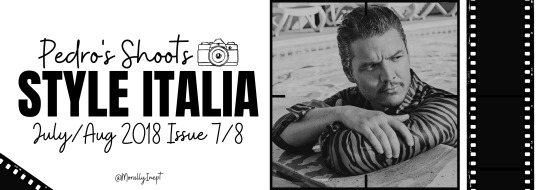
Shoot: Style Italia Magazine, July/Aug 2018, Issue 7/8
Photographer: Michael Schwartz
Interviewer: Giovanni Grassi
Grooming: Mira Chai Hyde
Full interview, behind the scenes, outtakes & shoot photographs below. 👇🏻
Jett's Pedro Shoot's Masterlist
• Cover shot & main images used in the magazine.

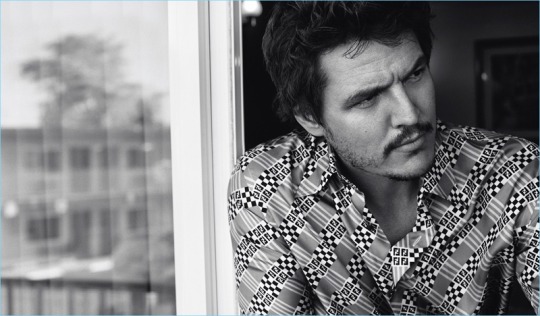

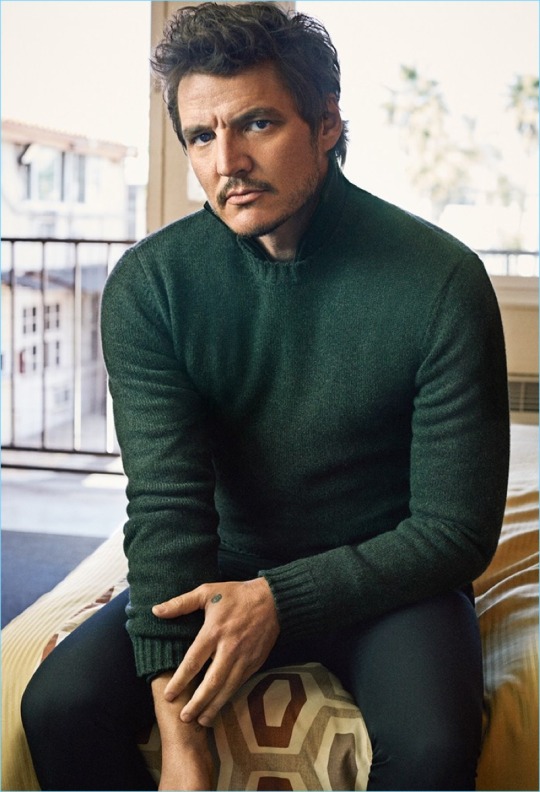
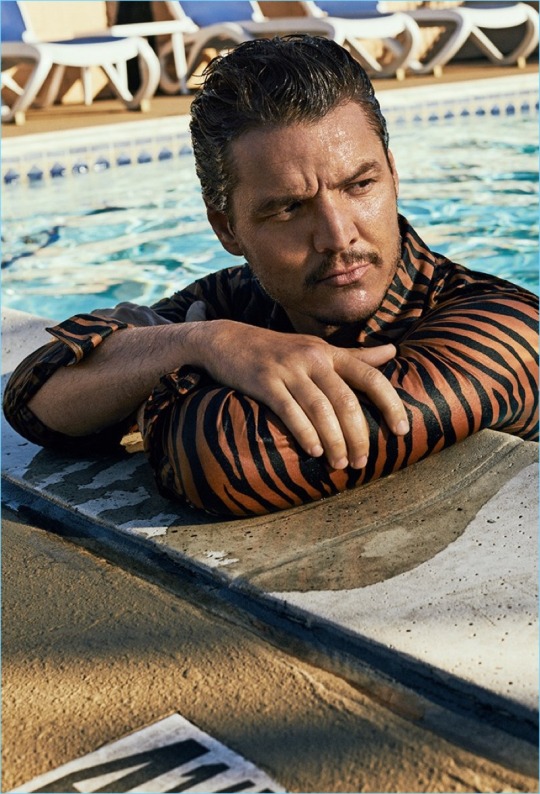
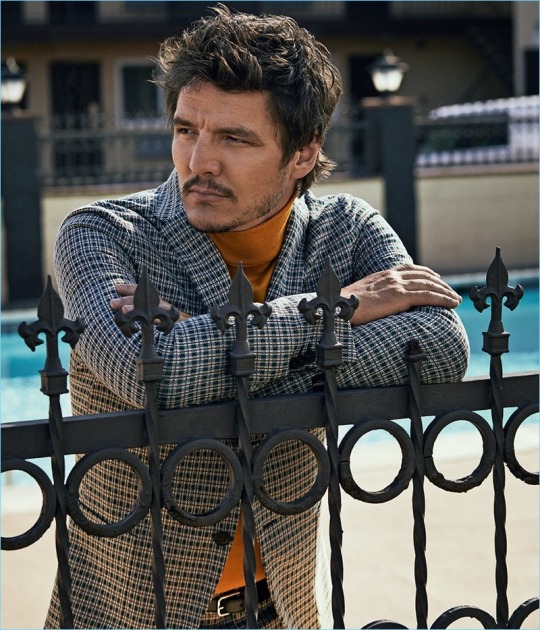
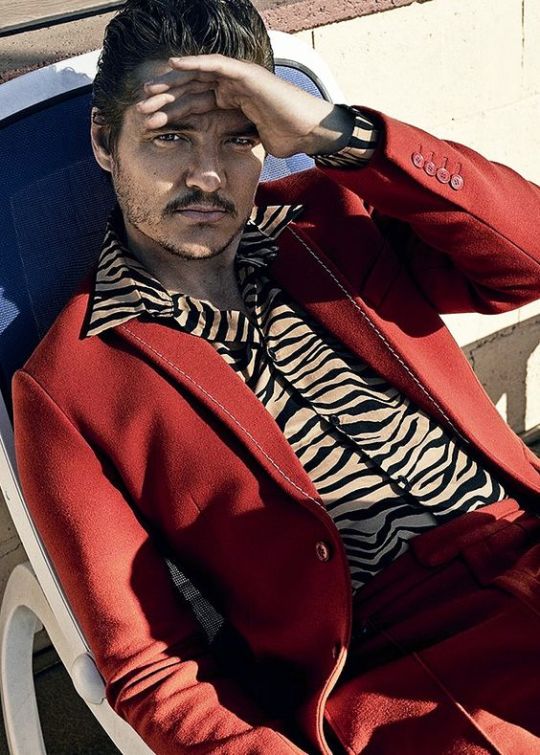
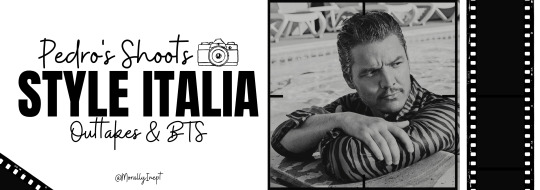
• Outtakes.
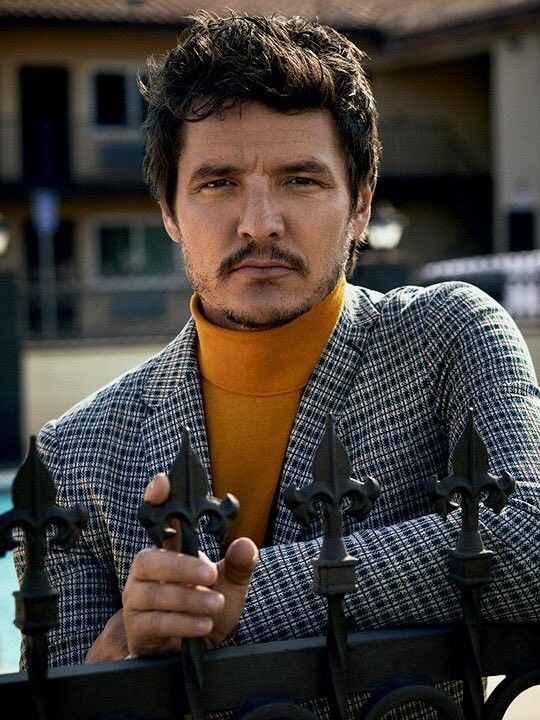
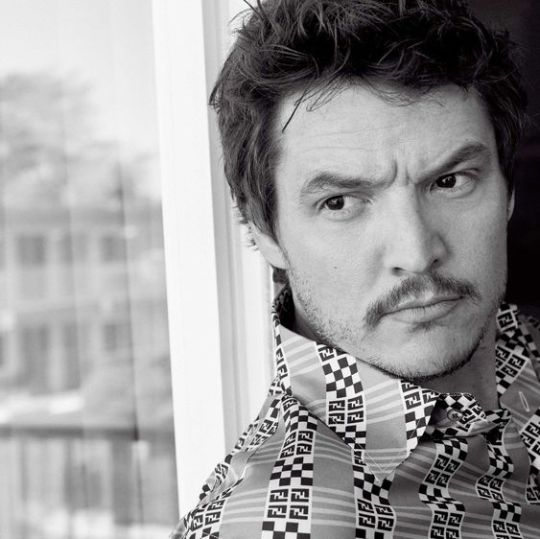
• Image from main shoot above zoomed in. 👇🏻

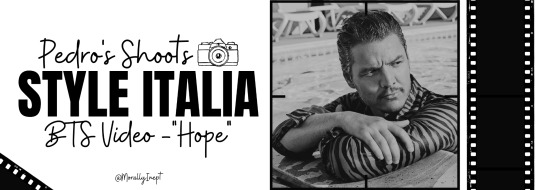
• Promo Video 'Hope' that accompanied the shoot.
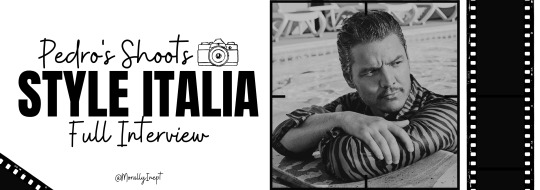
• Full interview, originally translated from Italian by myself. Italian version below translated version.
The son of Pinochet's opponents, Pedro Pascal lived as a refugee in Denmark and the United States. Then, his encounters with cinema "to get to know the world" and success in TV series, from Game of Thrones to Narcos have made him a popular talent.
The appointment with Pedro Pascal is in a motel worthy of a horror movie, the actor known to many as Agent Javier Peña from the Narcos series, but who women appreciated first and foremost as Prince Oberyn Martell in Game of Thrones. We are not far from Orange County, where this 43-year-old born in Chile and raised as a refugee first in Denmark and then in the USA (his parents, supporters of Salvador Allende, had to leave the country after Augusto Pinochet's coup) spent most of his time his adolescence.
Very busy, between the filming of Wonder Woman 2 and the post-production of If Beale Street Could Talk, the film based on James Baldwin's book If Beale Street Could Talk and directed by Barry Jenkins, the Oscar-winning director of Moonlight, Pascal is really in the highlight of his career because he is among the most requested Latino interpreters in Hollywood. Not only will we see him on August 14 with Denzel Washington in The Equalizer 2 by Antoine Fuqua, but one of his most anticipated films for next year is Triple Frontier by J. C. Chandor from a screenplay by Mark Boal, producer and author of The Hurt Locker.
"Yes, the work is going well and offers me extraordinary experiences, which I would never have imagined when I was a student, even if I dreamed of them by spending the afternoons at the cinema while my sister made me listen to Madonna's Like a virgin until I was exhausted," he says laughing while a turntable continues to repeat Sia's song, Fire meets gasoline, in the video of which Pascal is seen alongside Heidi Klum in what has been defined as "one of the most sensual sequences of video clips". On the other hand, framing him only in his work as an actor is limiting: among other things, he is part of a theater group in New York and is also active as a director.
"I have always had a project: to exist and not just live, looking for a way to express my ideas and pursuing my passions. Individual reality is made up of many stages, crises, dreams, conquests, defeats. And I never forget that, as a Chilean, I have known and studied the tragedies of a country, from Spanish colonization to dictatorship and democracy."
What was, and perhaps is, your primary objective?
"I wanted an interesting and emotional life. I wanted to gain a sense of beauty in everything. I grew up feeling part of a family tree that did not want barriers, borders, discrimination: from Santiago we ended up in Denmark, then in San Antonio in Texas, then in Orange County in California and in New York. I dreamed while reading Flash Gordon comics, I listened to Iggy Pop songs, I was scared watching films like Jaws, I lived adventures with Indiana Jones, I devoured books and I always went to the swimming pool because I wanted to become a professional swimmer: when I became a professional swimmer in Texas at the age of 11 state swimming champion, I felt on top of the world. At the time I didn't yet know that life would take other turns..."
When did you decide to become an actor?
"I liked all the films with Steve McQueen and Paul Newman and the idea that by working in ever-changing countries I would get to know the world stimulated me. For me, travel means breaking things, changing habits and searching for new balances."
Among the many places in the world, where is it which would you choose a favourite?
"Walking on the Great Wall for Zhang Yimou's The Great Wall was like being in another galaxy. In the South of Italy, on the islands of Sicily such as Lipari and Stromboli, I experienced a symbiosis with nature that is necessary for me, even if I consider myself a man who always, or almost always, needs to feel like there is a metropolis around him. New York will always remain my habitat, but another of my favorite cities is Madrid."
And what do you like to do in your free moments?
"When I have time for myself I often listen to music: we live in a continuous bombardment of images and this is my way of smoothing out any violence. I like many composers and bands, from Erik Satie to Gun N' Roses, and making music together for me is true democracy."
What memories do you have of your professional beginnings?
"Then, and still now, I liked reading, writing, creating stories, traveling with the most varied characters between reality and fantasy. Acting as a way of expressing myself came later and gradually became the center of gravity around which to group all my experiences in the world of entertainment and, first and foremost, in my early days."
You owe a lot to Game of Thrones. Why, in your opinion, has this series had, and continues to have, global success?
"Because it talks about kingdoms, battles, poverty, social classes, mixes fantasy with science fiction and horror, in a mixture of references to the Middle Ages and the eternal realism of politics, relationships and human clashes, between dragons with burning eyes and individuals who have courage, fear, certainty and doubt."
What more do you want from your career?
"Meetings and stimuli from characters who are extremely different from each other. But I also want to dialogue with the public, which for me means sociability, authentic contacts with the most disparate people. I want elegance in my life and to this word that is so abused today, I give the meaning of generosity."
How do you deal with rivalries with your fellow actors?
"By abstracting myself, creating wherever I am a portion of existence where friends, the people you choose and love have a specific place and we don't just talk about ourselves, our problems, but about the world. However, I have always believed that competition, like ambition, is an indispensable driving force in life: rivalry requires us first of all to beat ourselves and, ultimately, this is also why we dream of our goals, we move forward or we go back and we project ourselves towards some mirage.
If today, at the height of success, you were to write your epigraph, what would it be?
"Pick up your banjo and go play because in life it is important to do what you really want and not to become rich and famous."
_______________
In Italian as originally published:
Figlio di oppositori di Pinochet, Pedro Pascal ha vissuto da rifugiato in Danimarca e negli Stati Uniti. Poi l’incontro con il cinema «per conoscere il mondo» e il successo nelle serie tv, da Il Trono di Spade a Narcos.
È in un motel degno di un horror movie l’appuntamento con Pedro Pascal, l’attore conosciuto da tanti come l’ispettore Javier Peña della serie Narcos, ma che le donne hanno apprezzato in primis come il principe Oberyn Martell ne Il Trono di Spade. Non siamo lontani da Orange County, dove questo 43enne nato in Cile e cresciuto da rifugiato prima in Danimarca e poi negli Usa (i suoi genitori, sostenitori di Salvador Allende, dovettero lasciare il Paese dopo il golpe di Augusto Pinochet) ha trascorso gran parte della sua adolescenza.
Impegnatissimo, tra le riprese di Wonder Woman 2 e la post produzione di If Beale Street Could Talk, il film tratto dal libro di James Baldwin Se la strada potesse parlare e diretto da Barry Jenkins, il regista premio Oscar di Moonlight, Pascal è davvero nel momento clou della carriera perché è tra gli interpreti «latinos» più richiesti a Hollywood. Non solo lo vedremo il 14 agosto con Denzel Washington in The Equalizer 2 di Antoine Fuqua, ma uno dei suoi film più attesi per il prossimo anno è Triple Frontier di J. C. Chandor da una sceneggiatura di Mark Boal, produttore e autore di The Hurt Locker.
«Sì, il lavoro va bene e mi offre esperienze straordinarie, che quando ero studente mai avrei immaginato, anche se le sognavo passando i pomeriggi al cinema mentre mia sorella mi faceva ascoltare sino all’esaurimento Like a virgin di Madonna» dice ridendo mentre un giradischi continua a ripetere la canzone di Sia, Fire meet gasoline, nel cui video si vede Pascal al fianco di Heidi Klum in quella che è stata definita «una delle più sensuali sequenze dei videoclip». D’altronde inquadrarlo solo nel suo lavoro d’attore è limitativo: tra le altre cose, fa parte a New York di un gruppo teatrale ed è attivo anche come regista.
«Ho sempre avuto un progetto: esistere e non solo vivere, cercando un modo di esprimere le mie idee e inseguendo le mie passioni. La realtà individuale è fatta di tante tappe, crisi, sogni, conquiste, disfatte. E non dimentico mai che, come cileno, ho conosciuto e studiato le tragedie di un Paese, dalla colonizzazione spagnola alla dittatura e alla democrazia».
Quale era, e forse è, il suo primario obiettivo?Volevo una vita interessante ed emotiva. Desideravo conquistare il senso della bellezza in ogni cosa. Sono cresciuto sentendomi parte di un albero genealogico che non voleva barriere, confini, discriminazioni: da Santiago siamo finiti in Danimarca, poi a San Antonio in Texas, quindi a Orange County in California e a New York. Sognavo leggendo i fumetti di Flash Gordon, ascoltavo le canzoni di Iggy Pop, avevo paura guardando film come Lo squalo, vivevo avventure con Indiana Jones, divoravo libri e andavo sempre in piscina perché desideravo diventare un nuotatore professionista: quando a 11 anni divenni in Texas campione statale di nuoto, mi sentii al top del mondo. Allora non sapevo ancora che la vita avrebbe preso altre svolte…
Quando decise di diventare un attore?Mi piacevano tutti i film con Steve McQueen e Paul Newman e l’idea che lavorando in Paesi sempre diversi avrei conosciuto il mondo mi stimolava. Per me i viaggi significano rottura, cambiamento d’abitudini e ricerca di nuovi equilibri.
Tra i tanti luoghi in. cui è stato quali sceglierebbe?Camminare sulla Grande Muraglia per The great wall di Zhang Yimou è stato come trovarmi su un’altra galassia. Nel Sud dell’Italia, nelle isole della Sicilia come Lipari e Stromboli ho provato una simbiosi con la natura che mi è necessaria, anche se mi considero un uomo che ha sempre, o quasi, bisogno di sentirsi una metropoli intorno. New York resterà per sempre il mio habitat, ma un’altra delle città che prediligo è Madrid.
E cosa le piace fare nei momenti liberi?Quando ho tempo per me stesso ascolto spesso musica: viviamo in un continuo bombardamento di immagini e questo è il mio modo di smussare ogni violenza. Mi piacciono tanti compositori e band, da Erik Satie ai Gun N’ Roses, e il fare musica insieme per me è la vera democrazia.
Quale ricordo ha dei suoi inizi professionali?Allora, e ancora adesso, mi piaceva leggere, scrivere, creare storie, viaggiare con i personaggi più svariati tra realtà e fantasia. La recitazione come maniera di esprimermi è venuta dopo e via via è diventata il baricentro intorno al quale raggrumare tutte le esperienze nel mondo dello spettacolo e, in primis, delle mie giornate.
Deve molto a Il Trono di Spade. Perché, a suo parere, questa serie ha avuto e continua ad avere un successo globale?Perché parla di regni, battaglie, povertà, classi sociali, mescola il fantasy alla fantascienza e all’horror, in un misto di riferimenti al Medioevo e all’eterno realismo della politica, dei rapporti e degli scontri umani, tra draghi con gli occhi accesi e individui che hanno coraggio, paura, certezze e dubbi.
Che cosa vuole ancora dalla sua carriera?Incontri e stimoli da parte di personaggi quanto mai diversi tra loro. Ma desidero anche dialogare con il pubblico, che per me significa socialità, contatti autentici con le persone più disparate. Voglio eleganza nella mia vita e a questa parola oggi così abusata, io do il significato di generosità.
Come vive le rivalità con i suoi colleghi attori?Astraendomi, creando ovunque io sia una porzione di esistenza dove gli amici, le personeche scegli e che ami hanno un posto preciso e non si parla solo di noi stessi, dei nostri problemi, ma del mondo. Tuttavia da sempre ritengo che la competizione, così come l’ambizione, sia una molla indispensabile nella vita: la rivalità ci impone anzitutto di battere noi stessi e, in fondo, è anche per questo che sogniamo le nostre mete, andiamo avanti o torniamo indietro e ci proiettiamo verso qualche miraggio. Se oggi che è all’apice del successo dovesse scrivere la sua epigrafe quale sarebbe? «Prendi in mano il tuo banjo e vai a suonare» perchè nella vita è importante fare quello che davvero vuoi e non diventare ricco e famoso.
Jett's Pedro's Shoots Masterlist
#pedro pascal#jose pedro balmaceda pascal#pedro pascal interview#pedro pascal photo shoot#pedro pascal magazine#pedro pascal fandom#pedro pascal images#pedro pascal words#pedro pascal talks#pedro pascal magazine shoot#pedro pascal photos
34 notes
·
View notes
Note
So, I noticed we're both on a Gwendoline Christie and Alfred Molina kick (which is weird that personal tastes run so alike!). Do you have any other actors you simp hard for? Asking for a friend who wants to expand her obsession towards other characters.
Weird? Nah. A happy occurrence. You should have seen me when I discovered that I and @omgbrainstorming like some of the same characters. Or how happy I was when I saw that you liked Molina as well. 😊
Well, for actors:
Mark Sheppard - as Crowley (SPN), James Sterling (Leverage)
2. Michael Sheen - as Aziraphale (Good Omens), Aro Volturi (Twilight), Martin Whitly (Martin Whitly)
3. Anthony Hopkins - as Hannibal, Stevens (The Remains of the Day), Frank Doel (84 Charing Cross Road)
4. Lana Parrilla - as Regina Mills (OuaT), Rita Castillo (Why Women Kill)
5. James Spader - as Raymond Reddington (Blacklist), Alan Shore (Boston Legal)
For characters, I was tagged in a fandom tag game once, so I'll put that:
The Librarians: Jenkins
Harry Potter: Severus Snape, Lucius Malfoy
The Devil Wears Prada: Miranda Priestly
GoT/asoiaf: Tyrion Lannister and Brienne of Tarth (obviously 😁)
BBC Sherlock: Mycroft Holmes
Agatha Christie’s Poirot: Hercule Poirot
Hellsing: The Major, Walter C. Dornez
Avatar: Dr. Grace Augustine
Daredevil (TV series): Franklin “Foggy” Nelson and Wilson Fisk
Pirates of the Caribbean: Hector Barbossa and Cutler Beckett
The Sandman (2022): Lucifer Morningstar (does it come as a surprise? 😁)
I'm sure there are others I can't recall just now. 😅 And you know I like Jafar from the animated movie since your fics are the ones I read repeatedly. 😊
21 notes
·
View notes
Text
2023 Reads
A new year means a new book list! I don't think I can top my 2022 count, but that's okay! I'm not totally sure what my reading goals this year will actually be, but I guess I'll sort it out on the way! XD For future reads, here's my 2024 list!
Four Treasures of the Sky - Jenny Tinghui Zhang
Narrative of the Life of Frederick Douglass - Frederick Douglass+
The Bear and the Nightengale - of the Winternight Trilogy by Katherine Arden
The Secrets We Keep - Mia Hayes
Indian Nations of Wisconsin: Histories of Endurance and Renewal - Patty Loew+
The First Sister - Linden A. Lewis^
The House of the Seven Gables - Nathaniel Hawthorne
The Absolutely True Diary of a Part-Time Indian - Sherman Alexie
Fahrenheit 451 - Ray Bradbury~
Fin Mac Cool - Morgan Llewlyn^
How Long 'til Black Future Month by N. K. Jemisin
Lavinia - Ursula K Le Guin^
Pride and Prejudice - Jane Austin*
Black Cowboys of the Old West: True, Sensational, and Littke-Known Stories form History - Tricia Martineau Wagner+
The Mysteries of Thorn Manor - Margaret Roberson%
Disfigured: On Fairy Tales, Disability, and Making Space - Amanda Leduc+
Her Majesty's Royal Coven - Juno Dawson^
She Who Became the Sun~ - Shelley Parker-Chan*
The Witch King - H.E. Edgmon^
Love in the Time of Cholera - Gabriel Garcia Marquez
Legends & Lattes - Travis Baldree*
Mistress of the Art of Death - Ariana Franklin^
The Adventures of Amina El-Serafi - S.A. Chakraborty
Humankind: A Hopeful History - Rutger Bregman+
The Folk Keeper - Frannie Billingsly*%
Believe Me: A Memoir of Love, Death, and Jazz Chickens - (Suzy) Eddie Izzard+
Juniper & Thorn - Ava Reid
Upright Women Wanted - Sarah Gailey%
I Await the Devil's Coming - Mary MacLane+
Slaughterhouse Five - Kurt Vonnegut~
Revolting Prostitutes: The Fight for Sex Workers' Rights - Molly Smith & Juno Mac+
The Woman in White - Wilke Collins^
King of Battle and Blood - Scarlett St. Clair
Sarah - J.T. LeRoy^
The City Beautiful - Aden Polydoros^
Freshwater - Akwaeke Emezi
Always the Almost - Edward Underhill
All Systems Red - Martha Wells%
The Song of Achilles - Madeline Miller
Nevada - Imogen Binnie
A Dowry of Blood - S. T. Gibson
The Prince - Niccolo Machiavelli
The Second Rebel - Linden A Lewis
Get a Life Chloe Brown - Talia Hibbert
The Hero and the Crown* - Robin McKinley
What Happened to You?: Conversations on Trauma, Resilience, and Healing - Bruce D Perry & Oprah Winfrey+^
Can't Spell Treason Without Tea - Rebecca Thorne
The Eye of the Heron - Ursula K Leguin
Artificial Condition -Martha Wells%
The Kraken's Sacrifice - Katee Robert%
Crown Duel - Sherwood Smith*
Rogue Protocol - Martha Wells%
Remarkably Bright Creatures - Shelby Van Pelt
Adult Children of Emotionally Immature Parents: How to Heal from Distant, Rejecting, or Self Involved Parents - Lindsay C Gibson+
Wildcat: The Untold Story of Pearl Hart, the Wild West's Most Notorious Woman Bandit - John Boessenecker+
The History of Wales - History Nerds+%
Ander & Santi Were Here - Jonny Garza Villa
The Glass Castle - Jeanette Walls^
Rosemary and Rue - Seanan McGuire^
The Gilda Stories - Jewelle Gomez
Irish Fairy and Folk Tails - Various+
The Dead and the Dark - Courtney Gould
Haunted Wisconsin - Michael Norman and Beth Scott+
The Other Black Girl - Zakiya Dalila Harris
The Ruins - Scott Smith
He Who Drowned the World - Shelley Parker-Chan
Fledgling - Octavia Butler
Vampire Forensics: Uncovering the Origins of an Enduring Legend - Mark Collins Jenkins+
The Vampyre - John Polidori%
This is Halloween - James A Moore
Sorrowland - Rivers Soloman
The Lamb will Slaughter the Lion - Margaret Killjoy%
Mexican Gothic - Silvia Moreno-Garcia
Love Her or Lose Her - Tessa Bailey^
One Last Stop - Casey McQuiston*
The Last Hero - Linden A. Lewis
Lovelight Farms - B. K. Borison
Reindeer Falls Collection: Volume One - Jana Aston
Currently reading: One Last Stop (Audiobook to help me sleep XD)
Nonfiction is annotated by +
A Re-read is annotated by *
A book completed from the list below is annotated by ^
A Read with Empty will be annotated by ~
A Novella %
My current, loose and not that interesting goal for this year is to really work on the books I have current access to right now... at the start of this year. Because it's a lot XD This means books currently favorite in Scribd, on my StoryGraph 'to read' pile, or a book I currently own on my shelves. Main goal is at least one of these a month.
For my own personal reference, I'm putting a list of such books below to hold myself accountable.
Edit: Now the end of 2023, and here's a breakdown of my goal to read books I already had access to at the start of 2023:
I didn't read one a month per se, but I got more than 12 done, so I call this a win. These books are:
-Can't Spell Treason Without Tea - Rebecca Thorn
-The City Beautiful - Aden Polydoros
-Finn Mac Cool - Morgan Llewlyn
-The First Sister by Linden A Lewis (proceeded by the other two in the series)
-Get a Life, Chloe Brown - Talia Hibbert
-The Glass Castle - Jeannette Walls
-Haunted Wisconsin - Michael Norman & Beth Scott
-Her Majesty's Royal Coven - Juno Dawson
-I Await the Devil's Coming - Mary McClane
-The Kraken's Sacrifice - Katee Robert
-Lavinia - Ursula K Le Guin
-Love Her or Lose Her - Tessa Bailey
-Mistress of the Art of Death - Ariana Franklin
-Nevada - Imogen Binnie
-The Prince - Niccolo Machiavelli
-Rosemary and Rue - Seanan McGuire
-The Ruins - Scott Smith
-The Song of Achilles - Madeline Miller
-Sarah - J.T. LeRoy
-Vampire Forensics - Mark Collins Jenkins
-What Happened to You? - Oprah Winfrey
-The Witch King - H. E. Edgmon
-The Woman in White - Wilkie Collins
The books I did not get around to reading from this list are as follows: Black Water Sister by Zen Cho; Blood Scion by Deborah Falaye (o); The Book of M by Peng Shepard (o); Charity and Sylvia by Rachel Hope Cleves (o); The Cruel Prince by Holly Black (a); The Echo Wife by Sarah Gailey (s); Fallen by Lauren Kate (o); Fanny Hill by John Cleland (o); Felix Ever After by Kacen Callender (s); The Glass Woman by Caroline Lea (s); The Great Hunger by Cecil Woodham-Smith (o); Helping Her Get Free by Susan Brewster (o); The Impossible Girl by Lydia Kang (s); Lovely Bones by Alice Sebold (o); The Merry Spinster by Daniel Lavery (o); On Earth We're Briefly Gorgeous by Ocean Vuong (o); The Poppy War by R. F. Kuang (s); Radiance by Grace Draven (a); Watching the Tree by Adeline Yen Mah (o); The Willows by Algernon Blackwood (s); Wings of Fire (o); Witches Steeped in Gold by Clannon Smart (o); The Wolf and the Woodsman by Ava Reid (s)
23/46
Whoa! That's exactly 50% of the books I had on my list! That's pretty cool! All in all, I consider this 2023 goal successfully done!
#tf reads#2023 reads#books#yearly lists#long post#well it will be ok even without the readmore eventually#reading#my reading index
23 notes
·
View notes
Quote
Psyco (1960) Alfred Hitchcock
Il mago di Oz (1939) Victor Fleming
Il padrino (1972) Francis Ford Coppola
Quarto potere (1941) Orson Welles
Pulp Fiction (1994) Quentin Tarantino
I sette samurai (1954) Akira Kurosawa
2001: Odissea nello spazio (1968) Stanley Kubrick
La vita è meravigliosa (1946) Frank Capra
Eva contro Eva (1951) Joseph L. Mankiewicz
Salvate il soldato Ryan (1998) Steven Spielberg
Cantando sotto la pioggia (1952) Stanley Donen e Gene Kelly
Quei bravi ragazzi (1990) Martin Scorsese
La regola del gioco (1939) Jean Renoir
Fa' la cosa giusta (1989) Spike Lee
Aurora (1927) Friedrich Wilhelm Murnau
Casablanca (1942) Michael Curtiz
Nashville (1975) Robert Altman
Persona (1966) Ingmar Bergman
Il padrino - Parte II (1974) Francis Ford Coppola
Velluto Blu (1986) David Lynch
Via col vento (1939) Victor Fleming
Chinatown (1974) Roman Polanski
L'appartamento (1960) Billy Wilder
Tokyo Story (1953) Yasujirō Ozu
Susanna! (1938) Howard Hawks
I 400 colpi (1959) François Truffaut
Gangster Story (1967) Arthur Penn
Luci della città (1931) Charlie Chaplin
La fiamma del peccato (1944) Billy Wilder
L'impero colpisce ancora (1980) Irvin Kershner
Quinto potere (1976) Sidney Lumet
La donna che visse due volte (1958) Alfred Hitchcock
8 1/2 (1963) Federico Fellini
Ombre rosse (1939) John Ford
Il silenzio degli innocenti (1991) Jonathan Demme
Fronte del porto (1954) Elia Kazan
Io e Annie (1977) Woody Allen
Lawrence d'Arabia (1962) David Lean
A qualcuno piace caldo (1959) Billy Wilder
Fargo (1996) Joel e Ethan Coen
Il mucchio selvaggio (1969) Sam Peckinpah
Moonlight (2016) Barry Jenkins
Shoah (1985) Claude Lanzmann
L’avventura (1960) Michelangelo Antonioni
Titanic (1997) James Cameron
Notorious - L'amante perduta (1946) Alfred Hitchcock
Mean Streets (1973) Martin Scorsese
Lezioni di Piano (1993) Jane Campion
Non aprite quella porta (1974) Tobe Hooper
Fino all'ultimo respiro (1960) Jean-Luc Godard
Apocalypse Now (1979) Francis Ford Coppola
Come vinsi la guerra (1926) Buster Keaton
In the Mood for Love (2000) Wong Kar-wai
Interceptor - Il guerriero della strada (1981) George Miller
Il lamento sul sentiero (1955) Satyajit Ray
Rosemary's Baby (1968) Roman Polanski
I segreti di Brokeback Mountain (2005) Ang Lee
E.T. - L'extraterrestre (1982) Steven Spielberg
Senza tetto né legge (1985) Agnès Varda
Moulin Rouge! (2001) Buz Luhrmann
La passione di Giovanna D'Arco (1928) Carl Theodor Dreyer
La vita è un sogno (1993) Richard Linklater
Bambi (1942) David Hand
Carrie - Lo sguardo di Satana (1976) Brian De Palma
Un condannato a morte è fuggito (1956) Robert Bresson
Parigi brucia (1990) Jennie Livingston
Ladri di biciclette (1948) Vittorio De Sica
King Kong (1933) Merian C. Cooper e Ernest B. Schoedsack
Beau Travail (1999) Claire Denis
12 anni schiavo (2013) Steve McQueen
Il matrimonio del mio migliore amico (1997) P. J. Hogan
Le onde del destino (1996) Lars von Trier
Intolerance (1916) D.W. Griffith
Il mio vicino Totoro (1988) Hayao Miyazaki
Boogie Nights (1997) Paul Thomas Anderson
The Tree of Life (2011) Terrence Malick
Agente 007 - Missione Goldfinger (1964) Guy Hamilton
Jeanne Dielman (1975) Chantal Akerman
Sognando Broadway (1966) Christopher Guest
Pixote - La legge del più debole (1981) Héctor Babenco
Il cavaliere oscuro (2008) Christopher Nolan
Parasite (2019) Bong Joon-ho
Kramer contro Kramer (1979) Robert Benton
Il labirinto del fauno (2006) Guillermo del Toro
Assassini nati - Natural Born Killers (1994) Oliver Stone
Close Up (1990) Abbas Kiarostami
Tutti insieme appassionatamente (1965) Robert Wise
Malcolm X (1992) Spike Lee
Bella di giorno (1967) Luis Buñuel
The Shining (1980) Stanley Kubrick
Scene da un matrimonio (1974) Ingmar Bergman
Pink Flamingos (1972) John Waters
Frank Costello faccia d'angelo (1967) Jean-Pierre Melville
Le amiche della sposa (2011) Paul Feig
Toy Story (1995) John Lasseter
Tutti per uno (1964) Richard Lester
Alien (1979) Ridley Scott
Donne sull'orlo di una crisi di nervi (1988) Pedro Almodóvar
La parola ai giurati (1957) Sidney Lumet
Il laureato (1967) Mike Nichols
Dall’articolo "I 100 migliori film della Storia del Cinema secondo Variety: 1° Psyco, 5° Pulp Fiction, 33° 8 1/2, 45° Titanic" di Antonio Bracco
19 notes
·
View notes
Text
Books I've read (2023) - 17
False Value, by Ben Aaronovitch
The Complete Robot, by Isaac Asimov
The Last Unicorn, by Peter S. Beagle
The High King’s Tomb (#3), by Kristen Britain
Blackveil (#4), by Kristen Britain
Mirror Sight (#5) by Kristen Britain
Firebrand (#6), by Kristen Britain
The Dream Gatherer (#6.5), by Kristen Britain
The Yiddish Policeman’s Union, by Michael Chabon
The Meiji Restoration: Japan as a Global Nation, by Robert Hellyer and Harald Fuess (Editors)
A Short History of Europe: From Pericles to Putin, by Simon Jenkins
The Children of Gods and Fighting Men, by Shauna Lawless
Bring up the Bodies (#2), by Hilary Mantell
Empire of Silence (#1), by Christopher Ruocchio
The Way of Kings (#1), by Brandon Sanderson
The Terror, by Dan Simmons
Some Desperate Glory, by Emily Tesh
Currently Reading
Winterlight (#7), by Kristen Britain
I'll get to these someday
American Prometheus: Oppenheimer, by Kai Bird and Martin J. Sherwin
Against All Gods, by Miles Cameron
Rubicon, by J. S. Dewes
I, Claudius, by Robert Graves
Ship of Magic (#1), by Robin Hobb
The Mad Ship (#2), by Robin Hobb
Pax, by Tom Holland
Babel, by R. F. Kuang
The Rise of Kyoshi, by F. C. Lee
The Shadow of Kyoshi, by F. C. Lee
The Mirror and the Light (#3), by Hilary Mantel
Teixcalaan Duology: A Desolation Called Peace (#2), by Arkady Martine
The Deed of Paksenarrion, by Elizabeth Moon
Gideon the Ninth (#1), by Tamsyn Muir
Harrow the Ninth (#2), by Tamsyn Muir
Nona the Ninth (#3), by Tamsyn Muir
Saevus Corvax Deals with the Dead, by K. J. Parker
She Who Became The Sun, by Shelly Parker-Chan
Howling Dark (#2), by Christopher Ruocchio
Mistborn: The Lost Metal (#7), by Brandon Sanderson
Stormlight Archive: Word of Radiance (#2), by Brandon Sanderson
Stormlight Archive: Oathbringer (#3), by Brandon Sanderson
The Bone Season (#1), by Samantha Shannon
A Day of Fallen Night, by Samantha Shannon
The Bone Shard War (#3), by Andrea Stewart
City of Last Chances (#1), by Adrian Tchaikovsky
Shigidi and the Brass Head of Obalufon, by Wole Talabi
Heroic Fantasy Short Stories (Anthology), by various authors
2 notes
·
View notes
Text
The Greatest Grammys Snubs of All Time
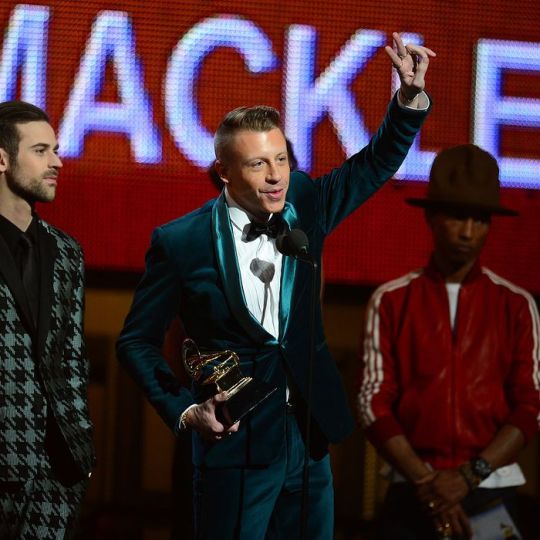
Winners For Best New Artist Macklemore (C) and Ryan Lewis accept their trophy on stage as Pharrell Williams and Anna Kendrick, presenters, look on during the 56th Grammy Awards at the Staples Center in Los Angeles, California, January 26, 2014. Photo: Frederic J. Brown/AFP/Getty Images
According to leading experts in the very scientific field of complaining about things, there is no pastime more popular than griping about all the instances where the Grammys screwed up and gave an award to the wrong person. As you may have surmised, this is a deeply objective exercise. Maybe Blood, Sweat & Tears’ 1970 album really is better than the Beatles’ Abbey Road. Maybe that Lionel Richie album that has “All Night Long (All Night)” on it really was filled with back-to-back classics the same way that Purple Rain and Born in the U.S.A. were. With the benefit of hindsight, a lot of the choices the Grammys committee has made seem insane, but at the time things were probably a bit murkier. Nevertheless, presented here in chronological order, is our list of the Greatest Grammys Snubs. We stuck to the big categories — Album of the Year, Song of the Year, and Best New Artist — because they’re the most fun to get outraged about. These categories also say the most about where our collective consciousness was at during any given year and where the Grammys thought it was at, too. Spoiler alert: Kendrick Lamar and Beyoncé got snubbed a lot.
1970: Blood, Sweat & Tears’ Blood, Sweat & Tears over the Beatles’ Abbey Road, Johnny Cash’s At San Quentin, and Crosby Stills & Nash’s Crosby Stills & Nash
With all due respect to the jazz-rock legends in Blood, Sweat & Tears, whose 1968 self-titled album was daring enough to jam Traffic, Billie Holiday, Cream, and Erik Satie covers into the same track list and make it work, and whose “Spinning Wheel” slaps to this very day, the Recording Academy had one job in 1970, and that was to slide the Album of the Year trophy to one of the three masterworks of the late ’60s. Blood, Sweat & Tears is great, but At San Quentin? Crosby, Stills & Nash? Abbey Road!? These are epochal records within their respective forms. Blood, Sweat & Tears isn’t even the tightest mainstream jazz-fusion album from the same eligibility period. (What’s up, Chicago Transit Authority?) Swing and a miss. —Craig Jenkins
1970: Joe South’s “Games People Play” over Blood, Sweat & Tears’ “Spinning Wheel”
See, the Grammy Blood, Sweat & Tears should’ve been a lock for in 1970 is Song of the Year for “Spinning Wheel.” Instead they got squeezed out in favor of singer-songwriter Joe South’s warm but cloyingly overproduced peace-and-love anthem “Games People Play,” which isn’t even the best song called “Games People Play.” This feels like the Academy voting for politics over quality; South’s song is easygoing, with good intentions, but not enough so to walk away with Best Contemporary Song as well as Song of the Year. “Spinning Wheel” is more memorable, and it charted better too. —CJ
1984: The Police’s “Every Breath You Take” over Michael Jackson’s “Beat It” and “Billie Jean”
Only in a white’s man world could this generic (by Sting’s own admission!) stalker’s anthem beat out two (two!) Michael Jackson songs. It was even sort of written into the title of one of those MJ songs that he was destined to beat the Police. Meanwhile, the other remains one of the biggest songs in the history of music. This was the year that MJ took home a record eight Grammys in a single night, but he deserved a ninth. —Dee Lockett
1985: Lionel Richie’s Can’t Slow Down over Prince’s Purple Rain and Bruce Springsteen’s Born in the U.S.A.
This is the year that the Grammys awarded Lionel Richie Album of the Year for Can’t Slow Down. That means they gave it to him instead of Bruce Springsteen’s Born in the U.S.A. and Prince’s Purple Rain. Don’t think about it too hard. Can’t Slow Down has “All Night Long” on it I guess. —Sam Hockley-Smith
1988: Linda Ronstadt and James Ingram’s “Somewhere Out There” over U2’s “I Still Haven’t Found What I’m Looking For”
The only thing the Recording Academy loves more than a chart smash is a drippy ballad, so James Ingram and Linda Ronstadt’s drippy chart smash “Somewhere Out There” was almost certain to come home with some gold from the 1988 show. The song’s win for Best Song Written Specifically for a Motion Picture or for Television made sense — although there are those who might rightly quip that the Dirty Dancing and Mannequin theme songs got robbed that year. Song of the Year is preposterous, though. When you think of the music that moved the culture of the late ’80s, are you thinking of Bono topping worldwide singles charts screaming at the desert sky, or are you conjuring up the schmaltzy love song from the Fievel movie? How many people even remember the Fievel movies? —CJ
1997: Céline Dion’s Falling Into You over Beck’s Odelay, the Smashing Pumpkins’ Melancholy & the Infinite Sadness, the Fugee’s The Score, and the Waiting to Exhale original soundtrack
The bummer about Céline Dion’s absolutely massive Falling Into You taking the ’97 Grammy for Album of the Year is that it’s quite possibly the most popular but least impactful album from that year’s entire crop of nominations. Beck’s Odelay was a collage of stoned slacker funk that still sounds innovative today, the Smashing Pumpkins’ Melancholy & the Infinite Sadness was a wistful, achingly beautiful double album that unapologetically cranked the angst dial to 19, the Waiting to Exhale soundtrack was both a showcase of Babyface’s writing skills, and an unimpeachable soundtrack packed with instant classics, and the Fugees’ The Scoreintroduced the world at large (see: everyone who was not already a rap fan) to Lauryn Hill, with a collection of lyrical Jersey rap tinged with just the right amount of pop sensibility. Compared to all of these, Falling Into You was as boring as it could possibly get. —SHS
1998: Shawn Colvin’s “Sunny Came Home” over No Doubt’s “Don’t Speak”
Shawn Colvin’s “Sunny Came Home” is a noble artifact from the stretch of the ’90s where alt-rock and Americana briefly rubbed elbows on the radio (see also: Sheryl Crow, Freedy Johnston, Tom Petty’s Wildflowers, etc.). High marks at the Grammys felt like overdue acknowledgment of women as formidable singer-songwriters in an era where Lilith Fair reminded everyone that rock and roll wasn’t just a game for boys. The same effect could’ve been achieved by giving the honor to No Doubt’s “Don’t Speak,” a song that served up Fleetwood Mac levels of band drama and commandeered complete control of the American airwaves for several months straight. Even ODB was confused about this one. —CJ
2000: Carlos Santana and Rob Thomas’s “Smooth” over the Backstreet Boys’ “I Want It That Way” or TLC’s “Unpretty”
Ah yes, who could forget the time that Carlos Santana and Rob Thomas’s instantly dated “Smooth” beat Ricky Martin’s cheesy “Livin la Vida Loca,” TLC’s “Unpretty” — which was not even the best single from FanMail — Shania Twain’s “You’ve Got a Way,” and Backstreet Boys’ megacatchy megahit “I Want It That Way.” A cursory glance through the nominees of this year paints a bleak pop landscape for the year 2000. Is “Smooth” better than “Livin la Vida Loca?” Uh … I guess? But this one clearly should have gone to “I Want It That Way,” which crystallized the early ’00s better than any other song nominated that year. —SHS
2001: Steely Dan’s Two Against Nature over Eminem’s The Marshall Mathers LP and Radiohead’s Kid A
It’s the first Grammy season of a whole millennium! What better way for the Academy to greet the dawn of a new era than to, uh, give the Album of the Year to a Steely Dan comeback album? In a year where Radiohead’s Kid A turned over a fresh digital leaf and Eminem’s Marshall Mathers LP blew young listeners’ minds with unprecedented levels of savage wit, bestowing oldsters Walter Becker and Donald Fagen with a de facto lifetime achievement award instead of respecting the austere artistry of Thom Yorke & Co. or the monstrous energy (and monstrous sales) of Marshall Mathers was a puzzling choice, one that, much like the legacy of all three artists, won’t soon be forgotten. —Frank Guan
2005: John Mayer’s “Daughters” over Kanye West’s “Jesus Walks”
We’ve had a chuckle or two at John Mayer’s expense — who hasn’t? But that doesn’t mean that the cornball singer-songwriter hasn’t made a genuinely good song in his time. Regretfully, “Daughters” is not one of those good songs. Watery and retrograde, the song confuses triteness for profundity to a degree exceptional by Mayer’s standards, which didn’t keep it from rising to No. 1 on the Adult Top 40 (who knows, it might even have helped). “Daughters” is a wet, limp slap in the face of public taste, and the fact that it won Song of the Year over a double-platinum track that slaps as hard as Kanye’s “Jesus Walks” says a lot about the tastes that prevail in the Academy, none of it good. —FG
2005 Best New Artist: Maroon 5 over Kanye West
It’s true that both Maroon 5 and Kanye West have carved out long careers in their respective lanes, and even had some crossover along the way — but one is not like the other. The Grammys are not in the business of predicting the future (if they were, there wouldn’t be so many holes in the BNA category), and they can’t map out a new artist’s trajectory for them. Could they have known the Kanye West who made the College Dropout also had Yeezus in him, or that the band with the potential to make Songs About Jane would go on to become karaoke versions of themselves? Maybe, if they were paying attention. The thing about Best New Artist awardees is that they are almost never actually new — there are plenty of times that this award has gone to an artist on their second or third album. By the time Kanye released College Dropout, the Grammys were already familiar with his production work, and had a sense of what kind of artist they had a chance to champion early on. They blew it, and Kanye never let them forget it. —DL
2006: U2’s How to Dismantle an Atomic Bombover Kanye West’s Late Registration
I might be more judicious about late-period U2 than most — I actually tagged along with a friend to the All That You Can’t Leave Behind midnight drop back when big-box record retailers used to open in the middle of the night so fans could have first crack at an artist’s new release. That said, How to Dismantle an Atomic Bomb marked the beginning of a long stretch where the Irish rock legends received high marks just for continuing to be around. Don’t get me wrong: Atomic Bomb is a good album, but it didn’t capture a moment or point to the future the way Kanye West’s Late Registration did. Kanye and Jon Brion put trombones and flügelhorns on a rap record! But men with guitars always win in the clutch … —CJ
2006: U2’s “Sometimes You Can’t Make It On Your Own” over Mariah Carey’s “We Belong Together”
The Grammys — in one of their most out-of-touch moments of that decade — saw fit to award U2 for a song I would bet most people can’t sing one note or lyric of on command. It’s not that the U2 song is bad — it’s an intimately written piece about Bono’s dying father, and some moments are genuinely devastating — they’ve just made this song before, and done it better. “We Belong Together,” on the other hand, cemented a career resurgence for Mariah and has aged flawlessly, becoming one of her best-known songs (all praise to the genius of Babyface). Somewhere, right this second, it’s being sung (badly) at karaoke. U2 hasn’t performed “Sometimes” on their last few tours. —DL
2008: Herbie Hancock’s River: The Joni Letters over Amy Winehouse’s Back to Black
Every now and then the Grammys will really Grammy by sneaking Lifetime Achievement Awards into its Album of the Year category. This happened in 2005 when they gave Ray Charles AOTY for his final album over career-defining works from Kanye West, Alicia Keys, Usher, and Green Day (and even though they’d already given him a Lifetime Award two decades earlier). It happened, too, when Robert Plant and Allison Krauss pulled off an upset. But it’s never been more regrettable than when Herbie Hancock beat Amy Winehouse. The Grammys voting panel could not have known that Herbie would ultimately outlive her and that Back to Blackwould become her final album (she died a few years later at 27). But they should’ve known then that while both albums were an homage to the past (Hancock was a Joni Mitchell covers album; Amy’s a doo-wop and soul tribute though technically original work), they had different purposes. Amy’s album proved her a once-in-a-generation talent, but Hancock’s only reaffirmed the obvious: He’s a legend. Except there are quite a few of his albums that do a better job of making that point. Amy would never have another. —DL
2011 Best New Artist: Esperanza Spalding over Drake and Justin Bieber
It was a pleasant surprise to see Esperanza Spalding pull off her shocking Best New Artist upset in 2011. Her contributions to the resurgence and crossover appeal of neo-jazz are unquestionable, but at the time, she was a relative unknown with not even a third of the audience Drake and Justin Bieber had amassed in their relatively young careers. Biebs was a teen heartthrob with tween-girl mania and mass-market singles; Drake was a Degrassi alum transitioning to a young rap phenom with hits already under his belt. Sure, it’s debatable that Drake and Bieber were new in 2011, but the Grammys thought they were new enough to nominate them. Florence and the Machine and Mumford & Sons, too, were no underdogs in this category given the success of their own respective singles and established followings. So what Grammys algorithm then led to Spalding pushing past all of them to win? That’s the thing about the Grammys: They make sense only to the people voting for them. (It is also likely the other four acts were too equal to pick one, so they picked the dark horse.) The rest of us just grab popcorn and hate-watch. —DL
2013: Mumford & Sons’ Babel over Frank Ocean’s Channel Orange
It’s 2018, and Mumford & Sons are still hugely popular, but they’re the kind of popular that feels so safe that it’s easy to forget that they’re popular at all. In other words, they do one specific thing — make music that evokes a rustic time that never really existed — and people come to them because they know that they will never stop doing that thing. They found their lane, and they are not going to exit it maybe ever. The Grammys’ Album of the Year category has always gestured at some form of timelessness — implicit in the very nomination is the idea that the albums in this category will not only say something about the year they were released, but will also be milestones in popular music down the line. Five years after the release of Babel and Channel Orange, which album feels more like its part of the (amorphous) conversation? Which album better reflects the state of the world as we currently understand it? Is it the fine-enough pop-folk album, or the first nuanced, complicated major statement from one of the most important artists we have right now? Maybe my wishing for the latter is putting too much emphasis on an idealized version of the Grammys that never really existed, or maybe they just got it wrong. —SHS
2013 Best New Artist: Fun. over Frank Ocean
Currently on indefinite hiatus, Fun. was a pop-rock trio whiter than a powdered doughnut, and it wasn’t all that shocking that their music tended toward toward the sweet and hollow. To be fair, they were pretty catchy, and their sophomore album, Some Nights, notched a No. 1 hit in “We Are Young” while also landing two other singles in the upper reaches of the Hot 100. How a band whose debut album came out in 2009 wins Best New Artist in 2013 behind the successes of its second album is something of a mystery. For Fun. to win Best New Artist in 2013 over Frank Ocean, though, isn’t so much a mystery as an insult to the meanings of the words best, new, and artist. Frank’s debut LP Channel Orange may or may not be a perfect album, but it’s undoubtedly great, the product of a unique voice and sensibility never known before. Snubbing him for an award that he could only be nominated for once seems especially gratuitous, and it’s hard not to imagine the slight contributing to Frank’s future decision to turn his back on the record industry. Why endure dishonor when you can do better elsewhere on your own? —FG
2014: Daft Punk’s Random Access Memoriesover Kendrick Lamar’s Good Kid, M.A.A.D City
There is an argument to be made, I suppose, that Daft Punk’s win for Random Access Memories — an album that sounded like a yacht made out of cocaine and good vibes — was a triumph of fun over Kendrick’s heavy autobiographical meditations on life, death, and identity. And yeah, if your primary reason for listening to music is to have fun and not think too much, there are far worse albums to listen to than RAM, which is accomplished, nuanced, and intricately constructed. But Good Kid — home to the instant classic “Money Trees,” the heartbreaking “The Art of Peer Pressure,” and the corny-but-it-still-works “Swimming Pools (Drank)” — was not just a solid collection of tracks. It was an album as Zeitgeist, and would help define Kendrick’s trajectory in the years to come. —SHS
2014 Best New Artist: Macklemore over Kendrick Lamar
Foreshadowing what would happen with Adele and Beyoncé just a fews year later, here we have another example of a white artist apologizing for the voting choices of the Grammys. Macklemore didn’t scold the Grammys onstage, and instead sent a now notorious apology text to Kendrick Lamar, and then shared a screenshot of it on Instagram. It took the Grammys more than 20 years to call another rapper Best New Artist after Arrested Development became the first in 1993. That they overlooked everyone else until Macklemore (then luckily got it together with Chance the Rapper last year) tells you all you need to know about what they think of hip-hop. —DL
2015: Beck’s Morning Phase over Beyoncé’s Beyoncé
No year forced us to consider what the Grammys are really awarding when they denote a specific body of music Album of the Year more than 2015. We can pretend that the Album of the Year award only takes into consideration the songs on the album divorced from all other context, but that way of thinking fails to take into account what Beyoncé did with her self-titled magnum opus, which was to rethink the album experience as we knew it. She released it with no warning — which wasn’t a first, but certainly no one has ever done it better — and it came with an entire supplementary visual component. Beyoncé featured 17 stand-alone music videos, each filmed in secret, each building unique worlds. Anyone else’s album would look paint-by-numbers in comparison, but that was glaringly true of Beck’s Morning Phase, which was very good, but did nothing to change the game and has had little influence on the art produced since. This would’ve been the opportune time for Kanye to snatch his mic instead of pull a pump fake. —DL
2016: Taylor Swift’s 1989 over Kendrick Lamar’s To Pimp a Butterfly
1989 didn’t just have hits for days. It had hits for weeks, months, even years — not to mention that the album proper did ungodly numbers. Even the fact that it was, at the time, Taylor Swift’s worst album speaks more to the high standard Swift had set with her first four albums than anything else. 1989 is a fun album! People will listen to it for years to come. In just about any other year than 2016, its Album of the Year win wouldn’t come close to being a snub. But 2016 was the year of To Pimp a Butterfly, an album that was more than fun. Kendrick Lamar’s sophomore effort is the sort of creation that doesn’t just raise heart rates, but purifies souls. Sure, it didn’t come close to going diamond like 1989, but spiritually speaking the thing is a diamond, a work of sheer perfection wrought under extreme pressure. It’s an album for the ages, and the fact that it couldn’t even take home Album of the Year is a landmark even in a long history of Recording Academy short-sightedness. —FG
2016: Ed Sheeran’s “Thinking Out Loud” over Kendrick Lamar’s “Alright”
There are music critics and publications who look on Ed Sheeran with what can best be described as grudging disdain, but even the coldest hater of the Brit singer would be pressed not to enjoy “Thinking Out Loud,” a ballad whose power is every bit as undeniable as its debt to Marvin Gaye’s “Let’s Get It On.” But while Sheeran was channeling Marvin Gaye in his lover-man mode, Kendrick Lamar was reviving the spirit of What’s Going On–era Marvin in “Alright.” If Sheeran’s tune is a home run, the Pharrell-produced “Alright” is spaceflight; in a year where Kendrick was also being robbed in the Album of the Year category, the deafness of the Academy voters stood out all the more. —FG
2017: Adele’s 25 over Beyoncé’s Lemonade
Is there a surer sign the Recording Academy got it wrong than that a winning artist using her acceptance speech to tell them so? In previous years, it was Kanye West doing the thankless work of crashing stages to right egregious wrongs on Beyoncé’s behalf; last year, Adele interrupted herself. It wasn’t that Adele’s 25 didn’t deserve to win Album of the Year, it just didn’t deserve it more than Lemonade, and Adele knew. “I can’t possibly accept this award,” she said, turning to Beyoncé in the front row, pointing to the way the album made black women feel seen. “The Lemonade album was so monumental and so well thought out and so beautiful and soul-baring. We all got to see another side to you that we don’t always see. You are our light.” 21 and Lemonade are legacy albums from hopeful legacy artists (the jury’s still out on Adele), but 25 is most known for breaking sales records. Lemonade should’ve received the same canonical accolades afforded to Adele’s better album just a few years earlier. —DL
2018: Bruno Mars’s “24K Magic” over Luis Fonsi and Daddy Yankee’s “Despacito”
The Recording Academy instituted the Latin Grammys in 2000 to more adequately recognize the sheer volume and diversity of Latin music, essentially an acknowledgment that Spanish-language music was then, and remains now, bigger than the rest of music combined. The gesture comes up short, though, in its failure to keep that same energy at the main event. When it comes to the “regular” Grammys, Spanish-language music has its own “Latin” catchall genre field, and historically that’s where it’s been relegated. Rarely has Latin music broken into the Big Four, with the exceptions of Santana and Rob Thomas’s novelty (and, uh, English-language) “Smooth,” which beat Ricky Martin’s “Livin’ la Vida Loca” for Record of the Year in 2000, and Los Lobos’ “La Bamba” cover in 1988. The Grammys had the opportunity to course correct in 2018 by awarding the biggest Spanish-language song of all time — and one of the biggest songs in music history, full stop — Luis Fonsi and Daddy Yankee’s “Despacito,” but they blew it. Both Song of the Year, and, an even worse call, Record of the Year, went to Bruno Mars’s “24K Magic.” “Despacito” was ultimately shut out. We know now what “Despacito” has meant to the música-urbana boom; the Grammys should’ve known better then. Flash forward two years later: Reggaeton is getting snubbed in the major categories at even the Latin Grammys; Cardi B, Bad Bunny, and J Balvin’s “I Like It” lost ROTY in 2019 to Childish Gambino’s “This Is America”; and Spain’s Rosalía, a white woman, is the Spanish-speaking world’s best shot at a major 2020 Grammy win, for Best New Artist. Will the Recording Academy ever learn? —DL
4 notes
·
View notes
Text
After Profitable Gold Medals At the 1964 Summer Time Olympics
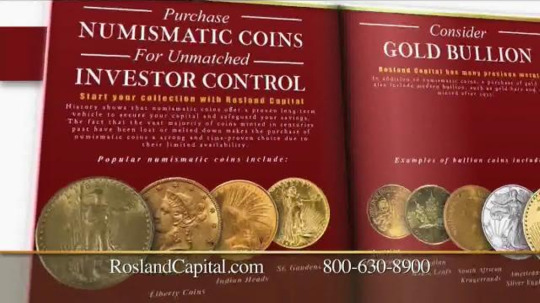
For public services within the Gold Coast. For public companies in Carmarthenshire. Michael Arbuthnot Sharpe, Colonial Administrative Service, Administrative Officer, Nyasaland. Henry Man Merson, Senior Government Officer, Home Office. Lionel Percival William Arthur Mortimer, Assistant Secretary, Ministry of Agriculture, Fisheries & Meals. George Oliver Jenkins, Foreman of Works, Staff of Superintending Civil Engineer, Admiralty, Colombo. Louis Pheasey, Superintending Examiner, Patent Workplace, Board of Trade. Harral Thompon, Deputy Leather Controller, Board of Trade. gold ira companies reviews , CMG, OBE, Excessive Commissioner in Pakistan for Her Majesty's Authorities in the United Kingdom. Alexander Davidson Hillhouse, Finance Director, Transport, Warehousing, Cold Storage and Salvage Divisions, Ministry of Meals. Eric Bridgnell, Below-Secretary to the government of India in the Finance Division.
youtube

Henry Joseph Pearson, MBE, Deputy Secretary to the federal government of the Punjab in the Finance Division. Major John Richard Cotton, MBE, Indian Army, Indian Political Service, lately Secretary to the Honourable the Resident at Baroda and for the States of Western India and Gujarat. George William Downs, MBE, Assistant Chief Constable, Nottingham City Police Power. Henry Goland Robinson, Emeritus Professor of Agriculture, College of Nottingham. Lieutenant-Colonel Walter George Robinson, TD (63706), Royal Regiment of Artillery, Territorial Army. Colonel William Paul Temple Roberts (38423), late Royal Regiment of Artillery. Lieutenant-Colonel (short-term) Francis Norton Wentworth Gore (34434), Royal Regiment of Artillery. Lieutenant-Colonel Alwyne Tregelles Hingston, MBE (50823), Royal Regiment of Artillery (Employed List).
Brigadier Gilbert Reader McMeekan, DSO, OBE (22955), late Corps of Royal Engineers (now RARO). Flying Officer C. E. Flecknell (195642), Royal Air Force Volunteer Reserve. John Mackenna Pearson, Director of the British Council Centre, Liverpool. top 5 gold ira companies , JP. Percival Pope, Common Supervisor, Montague Burton, Ltd. U Tun Ohn, TDM, Burma Police (Class I), Officiating District Superintendent of Police, Thaton. Reginald Hugh Whittam, Revenue-tax Officer, Grade I, Personal Assistant to the Commissioner of Earnings Tax, Burma. Brigadier Ivor Reginald Grove, OBE, Member of the Board and Technical Adviser, Military Kinema Company. Walter Douglas Goss, Nationwide Secretary, Transport and Common Employees' Union.
Horace Joseph Dunn, Chairman, District Council of Saddleworth, State of South Australia, for many years. Evelyn Mary Yeoman. For companies to George and Queen Elizabeth Officers' Club in Edinburgh, below the auspices of the Empire Societies' Warfare Hospitality Committee. Elizabeth May Harper, Supervisor, Publish Office Telephone Alternate, Exeter. Albert Edwards, Skilled Workman, Class I, Submit Workplace Phone Alternate, Greenwich. gold ira reviews , CBE, chairman, Engineering and Allied Employers' West of England Association. Lieutenant-Colonel William Muir Stewart, MB (73590), Royal Military Medical Corps. Anthony Arthur Duncan Montague Browne, DFC, lately Personal Secretary to the proper Honourable Sir Winston Churchill, KG, OM, CH, MP.
0 notes
Text
Books read in 2023:
Molly Sweeney (Brian Friel)
If Cats Disappeared from the World (Genki Kawamura)
Remembering Light and Stone (Deirdre Madden)
The Seven Husbands of Evelyn Hugo (Taylor Jenkins Reid)
Small Things Like These (Claire Keegan)
The Vegetarian (Han Kang)
The Forester’s Daughter (Claire Keegan)
One by One in the Darkness (Deirdre Madden)
Foster (Claire Keegan)
The Dark (John McGahern)
The Love and Lies of Rukhsana Ali (Sabina Khan)
Agatha Raisin and the Terrible Tourist (M.C. Beaton)
The Thursday Murder Club (Richard Osman)
The Travelling Cat Chronicles (Hiro Arikawa)
The Furthest Distance (Lucy Caldwell)
The Last White Man (Mohsin Hamid)
Convenience Store Woman (Sayaka Murata)
Lies of Silence (Brian Moore)
The Plough and the Stars (Seán O'Casey)
Before the Coffee Gets Cold (Toshikazu Kawaguchi)
So Late in the Day (Claire Keegan)
Burnt Out: How 'The Troubles' Began (Michael McCann)
My Year of Rest and Relaxation (Ottessa Moshfegh)
Not for Profit: Why Democracy Needs the Humanities (Martha C. Nussbaum)
What You Are Looking for is in the Library (Michiko Aoyama)
Diary of a Young Naturalist (Dara McAnulty)
Coraline (Neil Gaiman)
Reflections and some discussion under the cut
As u can see I had a Claire Keegan Deirdre Madden phase at the start of the year.....they're both good authors and Madden is v underrated imo (though Remembering Light and Stone was a little underwhelming for me, but still memorable).
My goal was 25 books and I'm happy I reached it. Reading books was something I loved as a child, but for various reasons I got very out of the habit and it got to the stage where I was really struggling to concentrate on reading novels for even a short period of time. But over the last couple of years I've been sloooowly getting back into the habit and so this year I privately set myself this challenge and while it did keep me motivated because I wanted to reach it, it also wasn't a burden and I really enjoyed being a bookworm again. I thought a few times about getting Goodreads again but I honestly think that it was one of the many things which put me off reading in the first place. I don't like feeling like I have to read fifty or a hundred or more books, and there is pressure to do that, and personally I do not feel that I can always sum up my feelings on a book neatly out of five stars.
Some of my faves this year were: Small Things Like These; One by One in the Darkness, The Thursday Murder Club; Convenience Store Woman; Before the Coffee Gets Cold; Burnt Out. Though I liked most of the books I read this year and I kinda just want to keep adding to this list.
My least faves: The Love and Lies of Rukhsana Ali (it was not the best written but not the worst, I liked aspects of it but others...not so much); Agatha Raisin (though I was expecting it to be well written lol); Lies of Silence (I have literally no idea how that book got shortlisted for the Booker Prize. It was meant to be a thriller but it was dull and predictable. RIP to the female characters' potential. I half wonder if I missed something because it seems to be on the LC curriculum, but there are so many more better books that deal with similar issues, like One by One in the Darkness by Deirdre Madden for example).
DNF (and do not really want to finish): Asking For It by Louise O'Neill. No doubt an important book and well written, but just too graphic for me.
I think I'm gonna keep the goal of 25 books for this year, but branch out a bit more. A lot of the books I didn't get finished last year were non-fiction, so I'll finish them and then add them to my 2024 list (is that cheating? lol idrc), and try to read other non fiction books and memoirs. Also, just over half of the books I read were Irish (14 books - 52 odd per cent), and while I LOVE Irish fiction (somebody talk to me about Deirdre Madden please) and the non-fiction books I read were really important and felt quite personal (Diary of a Young Naturalist gave me a greater appreciation for local wildlife, and was fun to read because I've been to many of the places the author described, and Burnt Out should be read by anybody who wants to understand The Troubles and made me think of my own family's experience, as well as appreciate impressive historical research done by a non-university academic) but I could probably do with exploring other cultures and histories more. So I'll try to do that. I'd also like to read more poetry, but I can't just sit down and read a book of poetry the same way I can a novel, I must spend days and weeks analysing a poem and going insane over it. I may or may not read a poetry book over a few months...we shall see.
#this post may contain the longest brackets i've ever written#again i meant to post this ages ago lol#books read in 2023#booklr#i kept this in my drafts for ages bc i wanted to add to/edit the reflections part but i cba now lol
1 note
·
View note
Photo


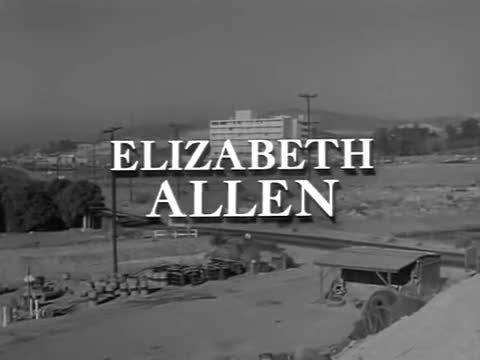
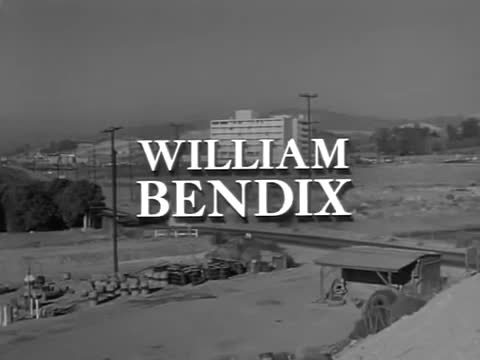

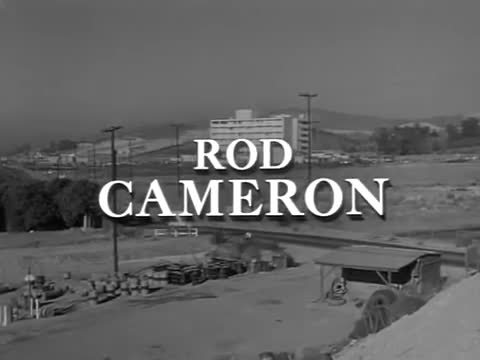
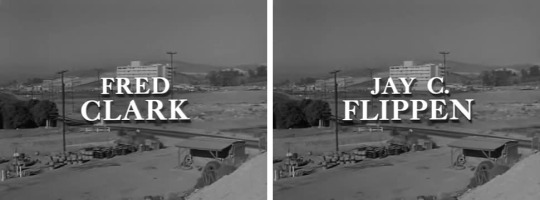
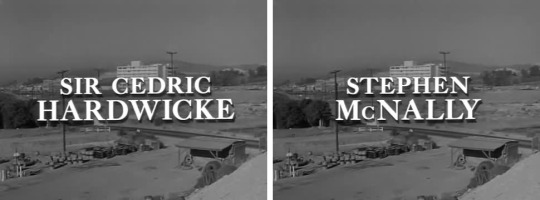

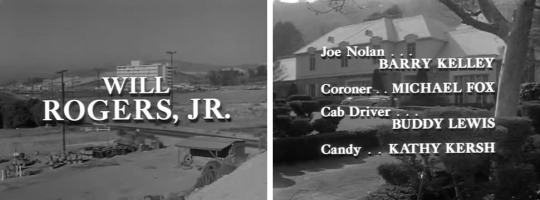
Who Killed Holly Howard
Season 1 Episode 1 of “Burke's Law” - ABC - September 20, 1963
Guest Stars:
Elizabeth Allen as Sophia
William Bendix as Fred Hopke
Bruce Cabot as Thomas Mathewson
Rod Cameron as Harry Joe Murdock
Fred Clark as “Mac” McNulty
Jay C. Flippen as Bill (Desk Sergeant)
Sir Cedric Hardwicke as John Busch
Stephen McNally as Ed Nickerson
Suzy Parker as Bridget Jenkins
ZaSu Pitts as Mrs. Bowie (her last on screen appearance)
Will Rogers Jr. as Vaughn Moore
Barry Kelley as Lt. Joe Nolan
Michael Fox as Coroner (George McCleod)
Buddy Lewis as Cab Driver
Kathy Kersh as Candy
The series established the practice of having groups of stars serving as suspects in each episode’s murder. These were listed as “Special Guest Stars”. Many of them would appear in multiple episodes as different characters,
#Who Killed Holly Howard?#TV#Burke's Law#Gene Barry#Gary Conway#Regis Toomey#Leon Lontoc#Elizabeth Allen#William Bendix#Bruce Cabot#Rod Cameron#Fred Clark#Jay C. Flippen#Sir Cedric Hardwicke#Stephen McNally#Suzy Parker#ZaSu Pittts#Will Rogers Jr.
1 note
·
View note
Text
A Real American Hero fancast (part 15)
Dylan Baker as Dr. Venom
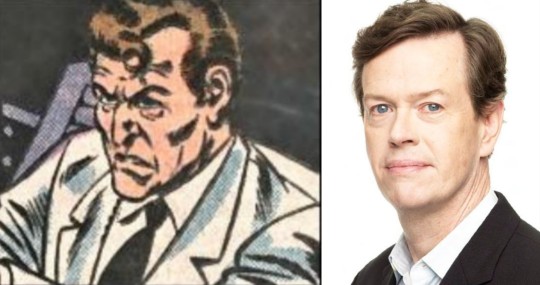
Josh Brolin as Stanley R. Perlmutter/Mutt
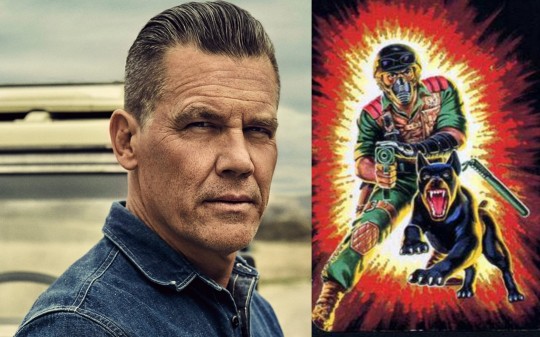
Jeffrey C. Robinson as Timothy P Hanrahan/Blowtorch
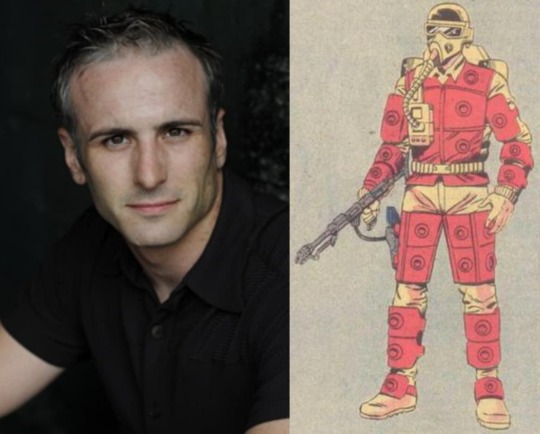
Jon Bernthal as my choice #1 for Machete
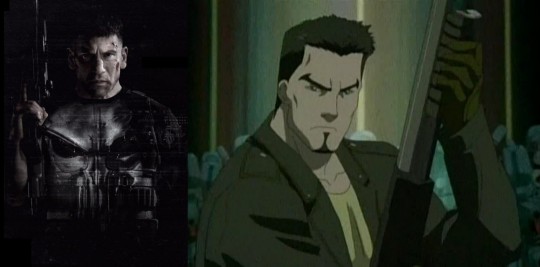
Paul Logan as my choice #2 for Machete
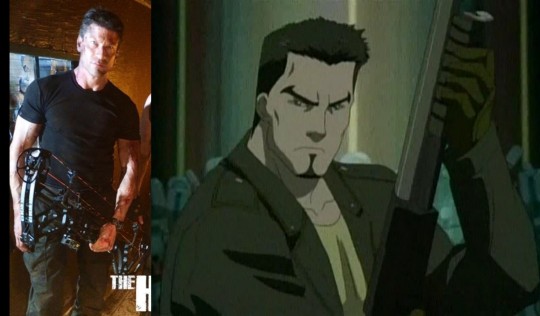
Eugene Brave Rock as Jesse Kwinn
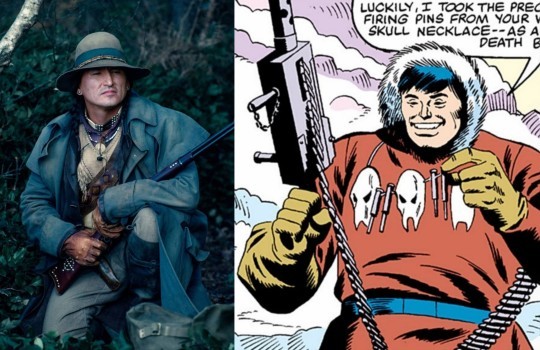
Zack Ward as Elwood G. Indiana/Crankcase

Carter Jenkins as Leonard Michaels/Scoop
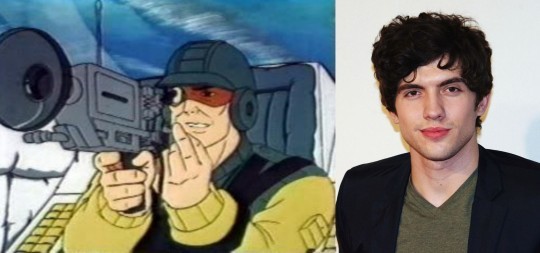
Dave Annable as Peter R. Millman/Spearhead
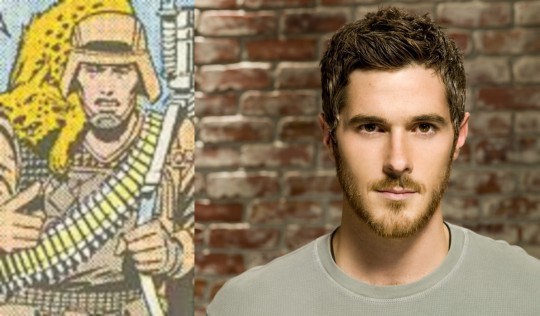
Kevin Durand as Overkill
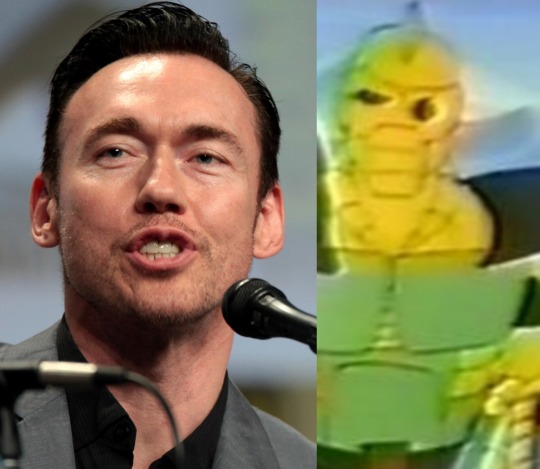
0 notes
Text
Lawyers say Michael C. Jenkins (pictured) was shot in the mouth after he & Eddie Terrell Parker were waterboarded as Mississippi cops competed to see "who’s taser was the strongest" over false allegations of “dating White women” & “selling drugs.”
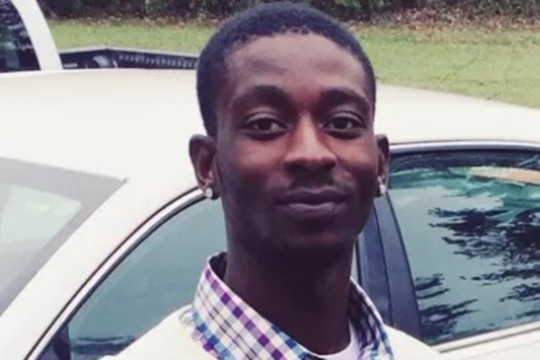
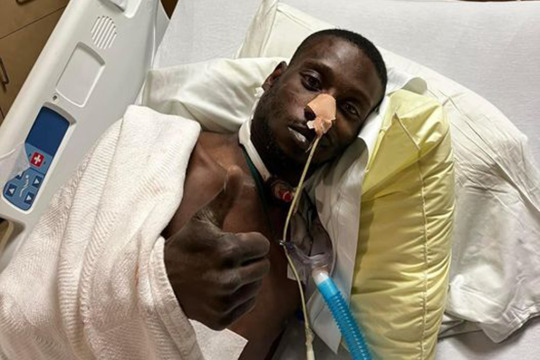
0 notes
Text

₊˚⊹♡ video masterlist ♡⊹˚₊
last updated 30.11.23 - links to youtube
5sos vs couches
old and new clips of 4 large men squeezing on small couches
5sos moments i think about a lot
live in my head rent free, etc etc
5sos being gamerZ
i like videogames, 5sos like videogames, i made a compilation of 5sos 'gamer moments'. tried to not make it just michael but he's in every clip
5sos moments that give me second hand embarrassement
moments i always skip because i literally can't watch them. this compilation was hard to make c:
5sos moments that remind me of other 5sos moments because i have a problem :)
exactly what the title says lmao
a 5sos playlist with no 5sos songs
i have a playlist with songs that remind me of 5sos. the video explains every song on the playlist. basically a compilation of 5sos singing random songs
michael and jordan aka michael jordan (from the july 22 league of legends stream)
alternate title: michael clifford and jordan jenkins flirting for 2 minutes and 42 seconds. cc
#video masterlist#i fancy myself a youtuber#anyway this is the first time im actively participating in fandom like this#ive always been a lurker#this is really scary#hope you like all the videos ˶ᵔ ᵕ ᵔ˶#d makes things
0 notes